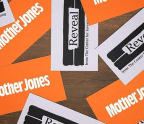Who Really Gets Rich from Robinhood

Alex Kearns started trading stocks on an app called Robinhood in 2018, two years before he threw himself in front of a moving train. The University of Nebraska sophomore and ROTC cadet was the only person in his family who used the app, but he had talked with his father, Dan, about it, who figured it seemed harmless enough. Alex was studying management and had gotten curious about investing as he learned more about financial markets. He’d even started chatting on the phone with a cousin, Bill Brewster, a professional investor and portfolio manager, about economics and central banking. But unbeknownst to anyone who knew him, Alex had begun trading high-risk financial instruments called options. He was at his family’s Naperville, Illinois, home when, a little before midnight, on June 11 of last year, he got a startling notification indicating he had lost $730,000. He had only about $16,000 in his account.
The alert sent Alex into a panic. Robinhood did not provide any obvious live customer service phone number. So he fired off three increasingly desperate emails to the company. Was it possible they’d made a mistake? He’d thought the losses on this trade were capped at $10,000. Could they please check? According to a lawsuit later filed by his family, the company sent back only unhelpful programmatic replies. One came in a little after 3 a.m., warning Alex he had just six days to deposit $178,612.73 to begin settling the trade. Alex sent his last note after 7:30 a.m., less than two hours before the markets were set to open on Friday morning—and a time when most professional brokers are already at work and answering calls.
He waited. The opening bell rang on Wall Street at 9:30, ushering in the trading day. Robinhood still had not sent anything to clear up the confusion. So Alex typed out a short note on his computer, saved a screenshot of his Robinhood balance, and got on his bike. He rode through his hometown, a leafy Chicago suburb where he’d been marooned after campus shut for the pandemic, eventually stopping at a secluded railroad crossing. Amid grassy sprawl and tidy houses, he ran onto the tracks. He was 20 years old.
His parents found his suicide note: “If you’re reading this then I am dead. See the image ‘Suicide 2’ for why.” He explained he never intended to take this much risk. He’d been looking forward to his future, he wrote, and he could not imagine the pain he’d caused his family. “Please understand that this decision was not made lightly. You could fill an ocean with the amount of tears I’ve shed typing this. Please, please take care of yourselves. The amount of my guilt I feel as I commit to this is unbearable—I did not want to die.”
That night, Bill was sitting around a campfire on vacation when Alex’s
You’re reading a preview, subscribe to read more.
Start your free 30 days





